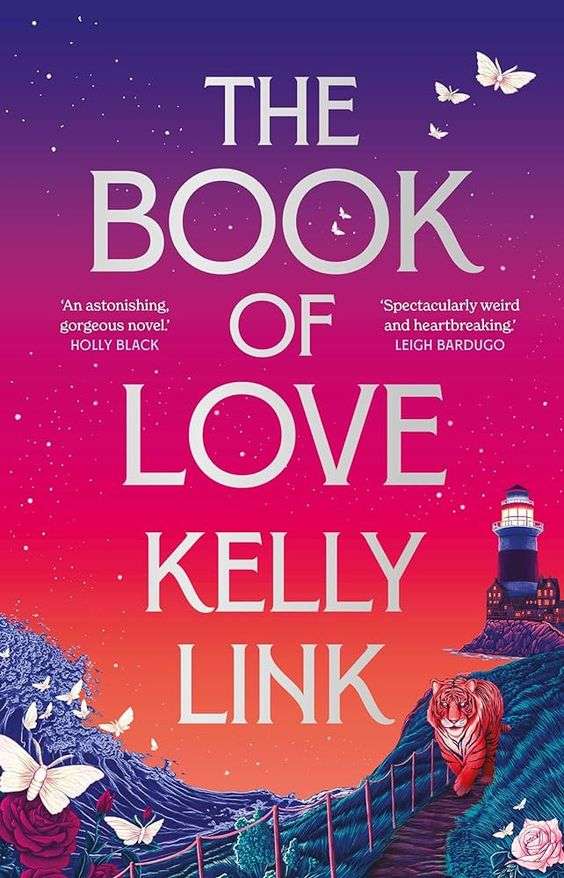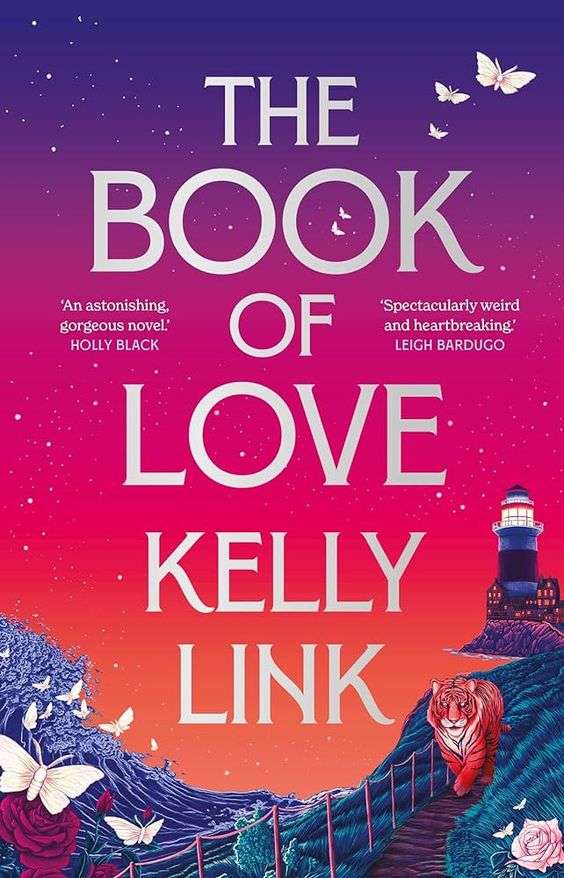The Book of Love by Kelly Link
Head of Zeus, HB, £20.24
Reviewed by Rym Kechacha

A Kelly Link fan is a reader well-versed in folklore and mythology and all the ways those things can get tricksy on you. A reader who is delighted when magic turns up in unexpected places and does unexpected things with a dry, what-can-you-do tone. They like puns and wordplay. They know that the stories will have mundane details of modern life all mixed in with the magic. They don’t need everything explained to them, relishing the gaps between what’s on the page and what’s in the imagination. After five short story collections that blur the boundaries between all sorts of publishing-industry imposed binaries (realist/speculative, comic/tragic, adult/YA), Link’s fans have come to expect deceptively complex worlds suffused with surrealist comedy, and I think of her as one of those writers who has changed and challenged the perceptions of what fiction – especially speculative fiction – can be and do.
The Book of Love, Kelly Link’s debut novel, is recognisably part of this genre-bending project and is going to delight her fans and win her new ones. It’s about grief, love – and ancient griefs and loves – and it features the kind of magic and mythology that doesn’t seem to be based in one tradition or lore but still feels familiar. Ancient curses and spells, omnipotent magic that nonetheless has an energy cost when used, memory manipulations, a bardo-like afterlife where beings are indefinitely held, and the bodies of gods metamorphosing into sacred objects – it all comes together here in a rich potion.
The story follows neighbours and friends in their late teens, Daniel, Laura and Mo, as they abruptly and mysteriously arrive back in their home town after being dead, or something horribly like it. With help from someone they thought was just their old music teacher, Mr Anabin, and his counterpart/strange friend Bogomil, they have to find out why they died, and they’re going back there.
The first half of the novel is paced quite slowly, meandering around the large cast of characters as they try to figure out what is happening to them and navigate their changing relationships. It comes as a surprise that only a couple of days have passed in narrative time when the action starts to speed up in the second half, and the story becomes a lot more compelling. Important questions about what is going on start to be answered as interesting incidental characters swirl around the main plot and become beloved to the reader, and the casual acts of supernatural cruelty from the delicious baddie in the form of Malo Mogge start to raise the stakes.
Did my previous experience with Kelly Link’s work and trust in her vision keep me reading when my energy for the story started to flag in the first half? Yes, I think it did, but that trust was rewarded. This pacing will be too slow for some readers, especially readers who are not familiar with the rest of Link’s work and the way her language functions on many levels, from ‘low’ (the puns and jokes) to ‘high’ (the beautiful literary descriptions). But I do think that the more we resist judging books according to some platonic ideal of pacing, the more we can meet a story – and an author – on their own terms.
There are loose ends, as you might expect of a short story writer, certainly as you’d expect of a writer as tricky to pin down as Kelly Link. What is the significance of Mo’s grandmother as a successful and prolific romance novelist and how does that link to the name of the town in which the story takes place, Lovesend, a Linkian place name if ever you heard one? What exactly does the hand-waving magic of removing memory of the three protagonists’ deaths help except a few mechanics of the plot? Is there some symbolism to Laura’s mother being a nurse to premature babies? Perhaps none at all, but it comes back to trust. I have always found that a Kelly Link story holds more than it appears to at first glance, and I think the Book of Love is no different.

